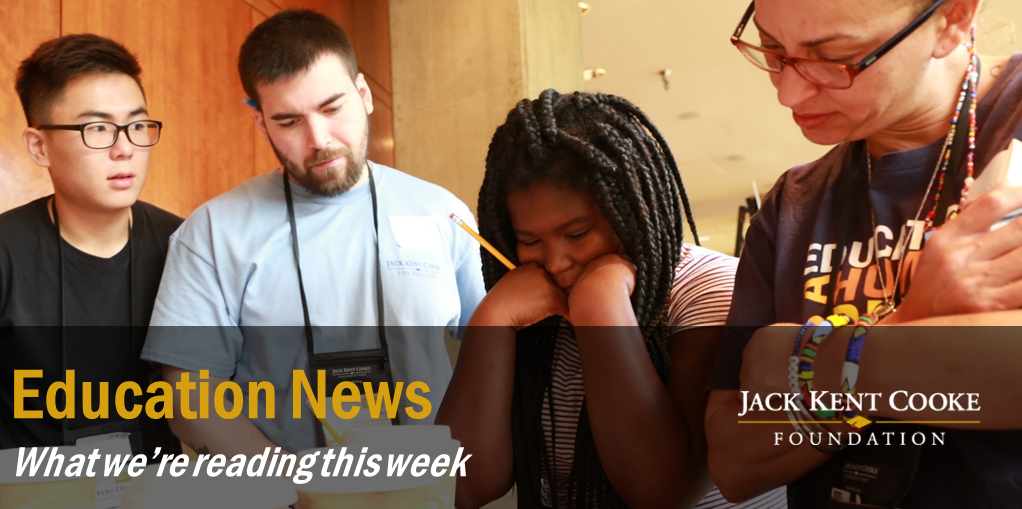September 25: Education News We're Reading This Week

September 25, 2015—Our weekly roundup of the biggest stories you might have missed!
Elementary & Secondary Education:
- The New York Times examines how education disparities between the rich and poor are growing. Facing more challenges and less support than their peers from higher socioeconomic status, “even the best performers from disadvantaged backgrounds, who enter kindergarten reading as well as the smartest rich kids, fall behind over the course of their schooling.”
- Research by Card and Giuliano supporting universal screenings for gifted children illustrates a common theme in education, says The Washington Post: “Missed chances early in life contribute to more missed chances down the line.“
- On the good news beat, The Washington Post describes how the D.C. Public Schools system is teaching all second graders to ride a bike. The activity reinforces the coordination and balance standards for that grade, in addition to promoting a healthy activity that many students in the city’s low-income neighborhoods have not had the opportunity to try before.
Higher Education:
- An interesting new report from The Education Trust finds that within colleges and universities, the average graduation gap between Pell grant recipients and non-Pell students is 5.7 percent. However, some institutions have a much wider range, indicating that too many Pell students attend institutions without strong student support systems.
- In an interview with The Chronicle, Jamie Merisotis of the Lumina Foundation states that equity in education goes beyond supporting individual low-income, first-generation, and minority students – it includes understanding the economic advantages of a diverse, educated nation.
- Contention over federal education policy, funding, and data collection is heating up, and The Atlantic examines various perspectives on the issues. Politico shares an interesting recap of the same discussion …from back in the 1860s.
- Looking at admissions data for private non-profit institutions, The Economist determines that the selectivity of a school correlates with increased tuition for students from high-income families in order to subsidize students from low-income families to attend.
- MarketWatch is concerned that many Americans underestimate the economic benefits of a degree. While the value of a college education goes beyond return on investment, “low-income households or households where the parents didn’t go to college were more likely to estimate incorrectly,” which might sway decisions for attending.
- Many schools are making SAT or ACT scores optional, but when Hampshire College approached admissions fully test-blind last year, they did not consider scores even when applicants submitted them. Inside Higher Ed reports that the college’s new practice resulted in a higher enrollment and more first-generation and minority students being admitted.
Cooke Foundation Highlights:
- Kavitha Cardoza elaborates on background information for her “Lower Income, Higher Ed” report in a broadcast that includes an interview with Executive Director Harold Levy.
- The President and CEO of College Board, David Coleman, presented at the recent Schools for Tomorrow conference. Education Dive‘s recap of his speech identified the Cooke Foundation as one of College Board’s partners in identifying opportunities for low-income students.
- Dr. Joseph Collins, acting interim president of the College of DuPage, shares economic data about the value of community colleges and our Undergraduate Transfer Scholarship in an article for the Daily Herald.
- The Cooke College Scholarship application is open! We’re looking for talented high school seniors with financial need to apply! Cooke Scholars receive up to $40,000 for each year – plus college planning support, ongoing advising, and the opportunities for study abroad, internships, and eligibility for a $50,000 per year Cooke Graduate Scholarship. Apply now through November 3, 2015: jkcf.org/college